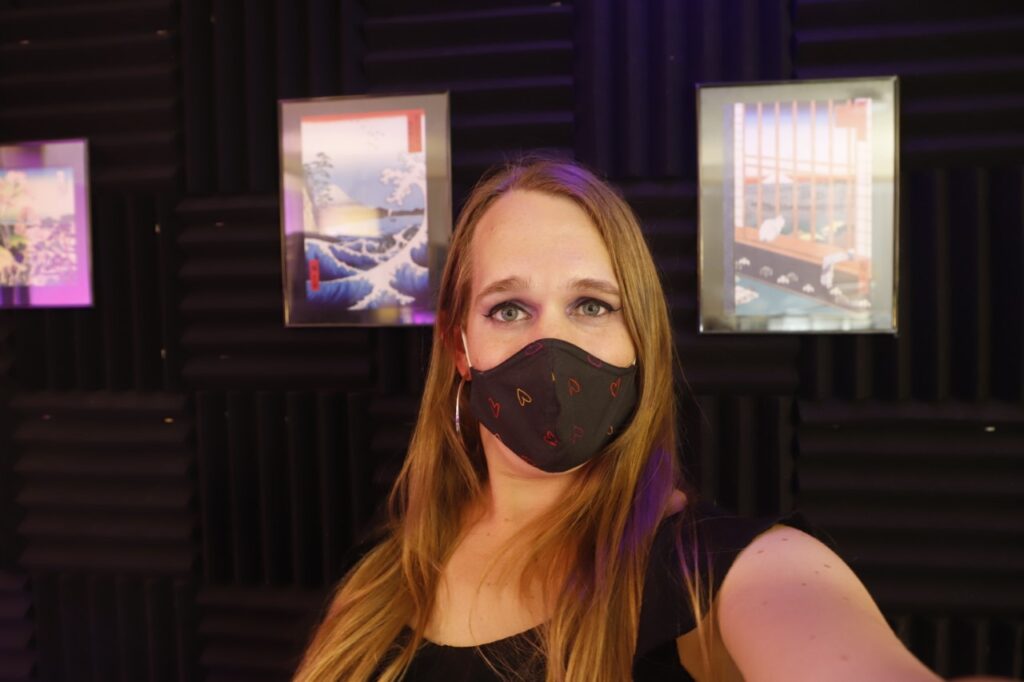By Lexa Baldwin
I started working for the University of Nevada as an IT Technician in 2019. After a long period of searching for a job where I felt accepted and valued as a transgender woman, and finding only discrimination and hostility, UNR finally felt like the workplace I had been looking for. It gave me an opportunity to develop the IT skills I’d learned after leaving the Marine Corps several years earlier, and a community where I could feel supported in my transition. That is, until a discriminatory state policy got in the way.
A few years before I started working at UNR, and after undergoing a period of self-examination, I started my transition and began to live openly as a woman. While I was finally able to live authentically as myself, and to be accepted and welcomed in some facets of my daily life, there was one aspect of my transition that still prevented me from living a life free of discrimination and negative attention.
Whether it’s picking up groceries, or getting on the bus, or simply walking around in public, your face is the first thing people see. When your face does not match your gender, though, it constantly outs you as transgender and for me, it triggers harassment and threats from the people I pass on the street or at the supermarket. Everywhere I go, I keep my head on a swivel, looking out for a negative comment or an unsafe situation. During the pandemic, face masks become a measure of security in more ways than one—I would wear them as often as possible to conceal my face in public situations and avoid negative attention over my public existence as a transgender woman.
Before I found my job at UNR, this forced visibility made it difficult for me to find work. It didn’t matter that I was a veteran, or that I had earned IT qualifications—employers saw me as a transgender woman first, and I lost opportunities because of the anti-trans discrimination that I faced. During that time, I was homeless for a period of a few months before I ultimately found work at UNR. These experiences are horrifyingly common among transgender people, who are more likely to experience discrimination, harassment, and homelessness.
For some transgender women, facial surgery can be an extremely powerful aspect of medical transition. The face is an intensely visible marker of gender, and it is one of the most important factors in determining how others perceive your gender. Because of this, facial surgery can also reduce discrimination and harassment and provide some measure of safety from the risk of violence. It’s no exaggeration to say that this care can be literally life-saving. As my transition progressed, I consulted with my doctors, who determined that facial surgery was medically necessary for me. I made plans and underwent consultations, but my efforts hit an immediate roadblock: my health insurance denied authorization for this healthcare.
As a Nevada state employee, my health insurance contained a discriminatory blanket exclusion for facial surgery for transgender people, even though the same plan covered similar facial surgeries when medically necessary to treat other conditions for cisgender people. Rather than examine my claim on a case-by-case basis, the state policy simply denied all claims for facial surgery for transgender people, no matter what. This exclusion was not just discriminatory, it also violated laws protecting transgender people from discrimination in employment and healthcare, and went against the medical standards of care for transgender people. As a state employee, I deserve the same health care benefits as every other employee. No one should be denied medically necessary care because of who they are, especially when that care is provided to other state employees, just as it would be if I needed facial surgery because of an injury from serving in the Marines.
I appealed the denial, hoping that my health insurance provider would change their minds about this discriminatory policy, but my appeal was denied. I didn’t see any other way forward, so I reached out to Lambda Legal, who filed a charge of discrimination with the Equal Employment Opportunity Commission on my behalf.
As a result, I am pleased to say that Nevada has removed the discriminatory exclusion, and has agreed to cover this medically necessary care. I’m relieved that I will be able to access this care, and that other transgender people will not have to go through what I went through. Transgender employees deserve to receive employment benefits on the same footing as any other worker.

